Where is iMessage for Android?
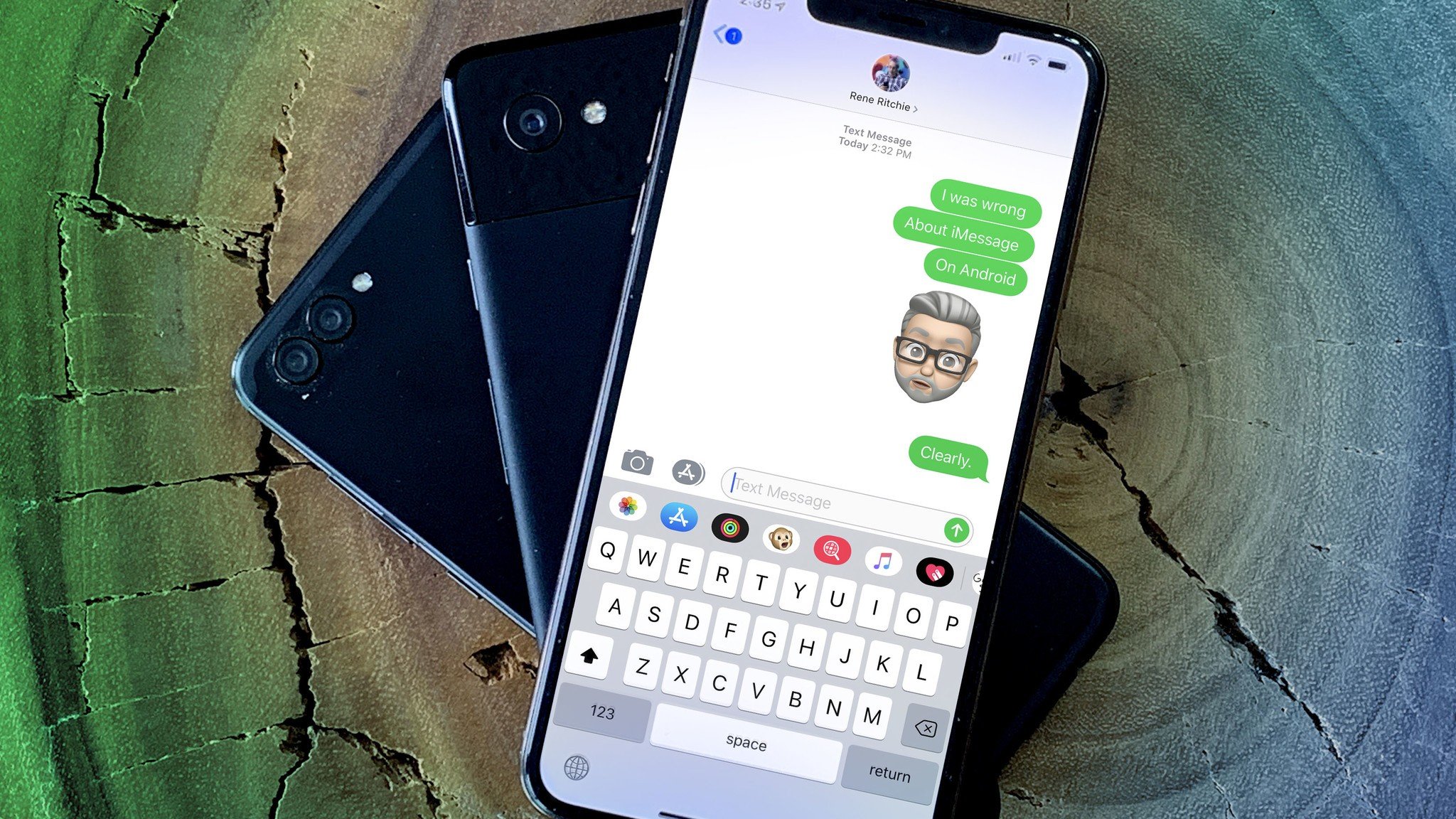
You all know what iMessage is, but just in case anyone stumbled onto this channel from out of a circa 2005 BlackBerry or something, it's Apple's text and media messaging service, bundled into the Messages app on iPhone, iPad, Apple Watch, Mac, and even annexed by HomePod and CarPlay.
But, much like BlackBerry Messenger back in the day, Apple devices and services is where the platform support ends. There's no iMessage for Android or for Windows, and unlike Apple's Mail, Contacts, Calendar, and iWork, there's not even an iMessage for iCloud.
At least not yet.
Rather watch than read? Hit play on the video version above!
Now, confession, I've been saying for years that Apple would never make iMessage for Android because it would hurt the overall value of iPhone and, for the last decade, iPhone is where the vast majority of Apple's money has come from.
But, with the saturationing — the phone business hitting maturity — and Apple increasingly turning towards its ecosystem — additional products like Apple Watch and AirPods yes, but also and especially services like Apple Pay and the upcoming Apple television shows — that could all change. Apple has long been offering Apple Music on Android, and has recently announced iTunes for Samsung televisions. Yeah. Samsung. iTunes. Stop the record and rewind that. As well as AirPlay and HomeKit for LG, Vizio, and Sony.
So, could cross-platform iMessage finally start making the kind of sense that does?
Master your iPhone in minutes
iMore offers spot-on advice and guidance from our team of experts, with decades of Apple device experience to lean on. Learn more with iMore!
Sticky Bubbles
iMessage is the most popular app on iOS according to what Apple said a few years ago. It's so popular, at least in North America — we'll leave China and WeChat out of this, but only for now — that people consider it a lock in. That is to say, something that prevents them from ever leaving iPhone and their blue bubble friends.
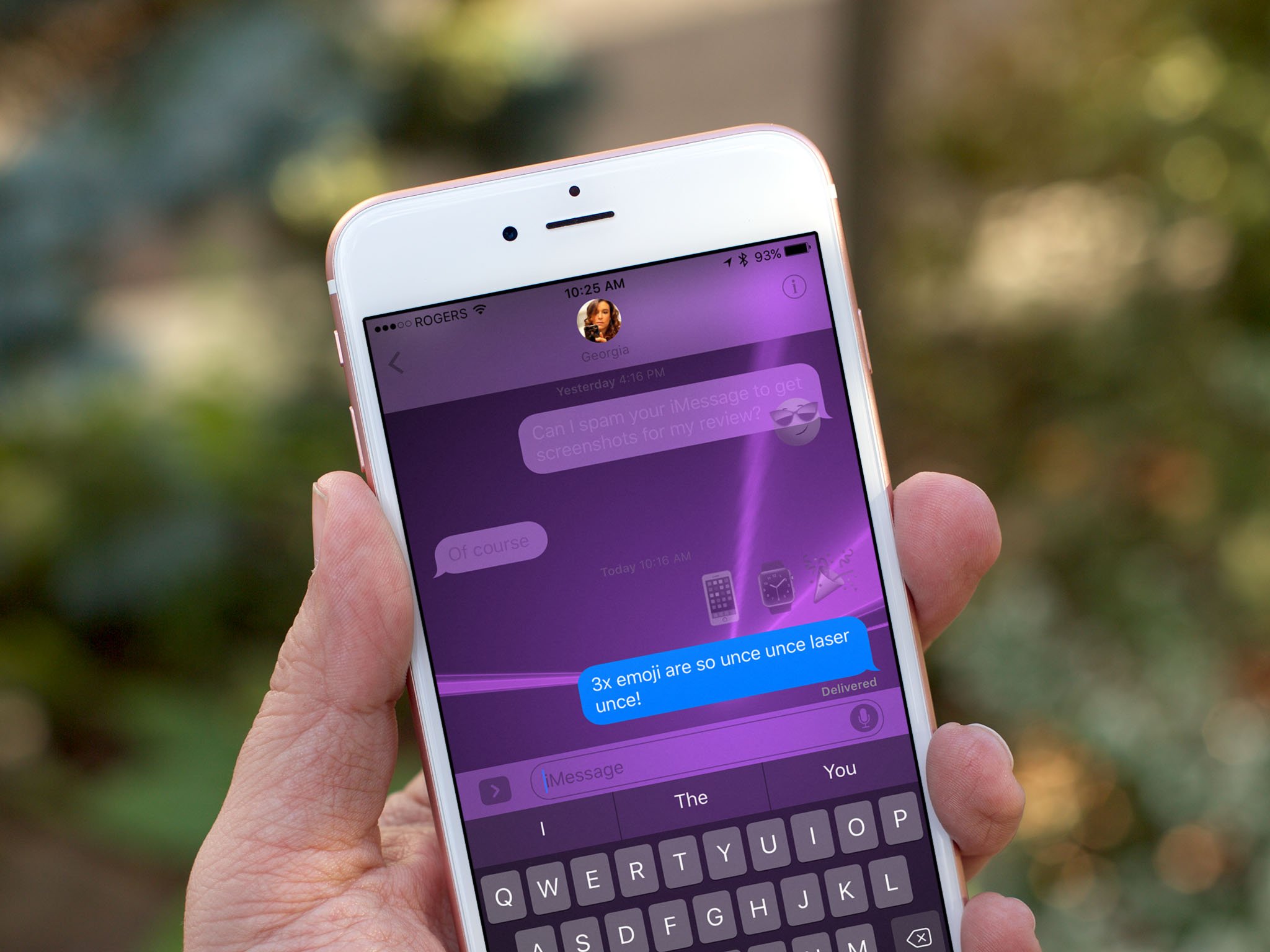
Yeah, that whole thing was the genius play. Well, two genius plays. The first was how seamlessly Apple integrated iMessage with SMS. If you used text messaging on iPhone, you used the Messages app, and if you used the Messages app with another Apple user, you used iMessage. That was it. The on-boarding was… was literally no on boarding. You were already all boarded on.
The second was the bubbles. Anyone who messaged you from another Apple device got a cool blue bubble. Everyone else, whether from a flip phone or Android phone, got a green bubble.
Blues and Greens. It might as well have been the Eloi and the Morlochs. Sorry. The wizards and the muggles.
Leave iPhone and you leave iMessage. You leave the blue.
That adds to both the value of Apple's platform and the stickiness.
But how long does that value last? Or, better said: when does that value transition from the platform to the service?
The BBM bust
Once upon a time, BlackBerry was in a similar situation. Evolving from the pager, it grew to support email first, then BBM — BlackBerry Messenger. By 2006, BlackBerry was an incredibly popular handset manufacturer with an incredibly popular messaging service. And those two things, their handset popularity and their messaging popularity, were inextricably linked. Anyone who wanted a high power job, and anyone who wanted to be with someone who had a high power job, needed to be on BBM.
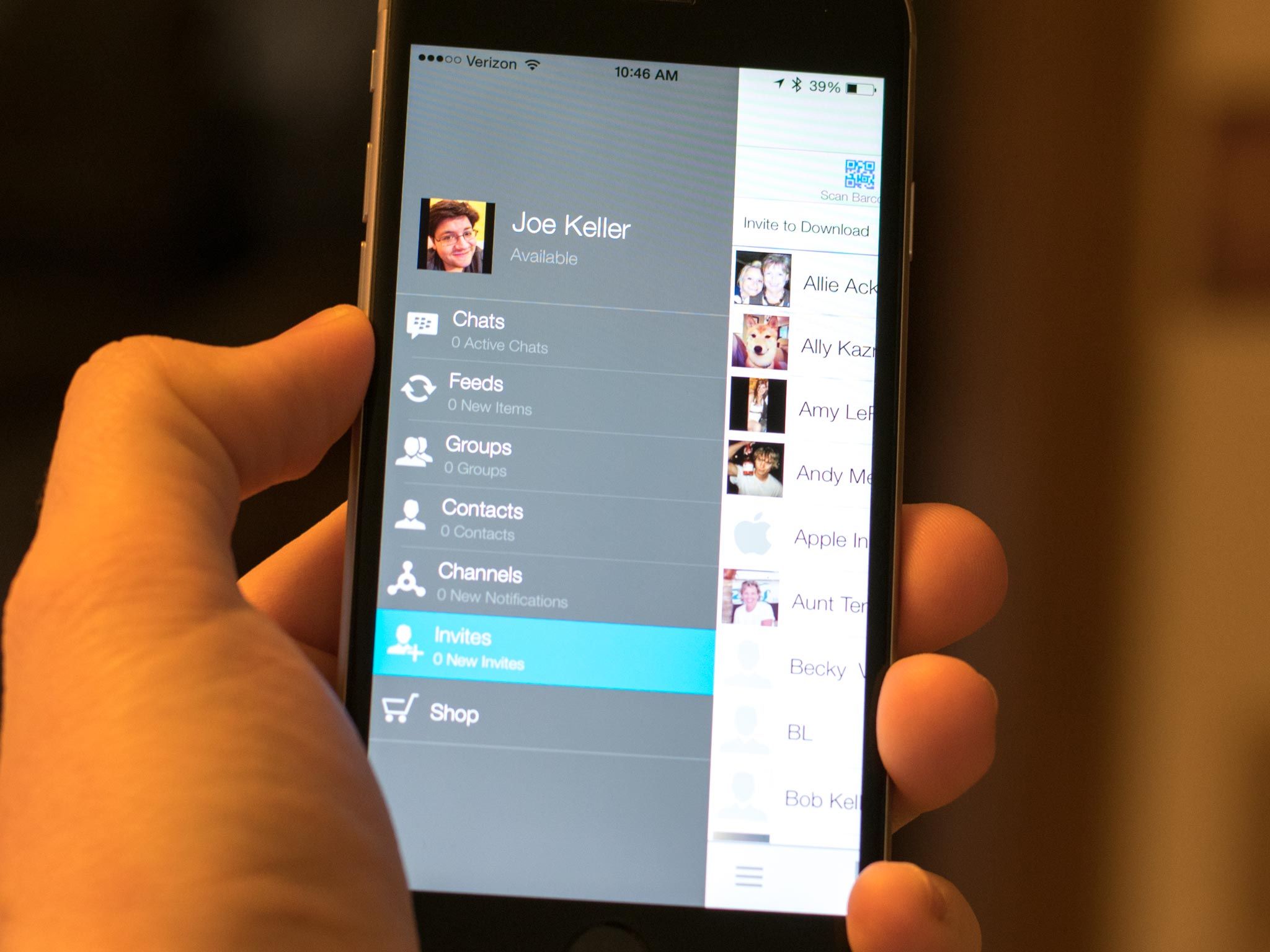
By 2010, however BlackBerry's handsets had fallen behind iPhone and Android. There was talk of BlackBerry taking BBM cross-platform but nothing ever came of it. They were seemingly afraid that if they let their messaging system go, their customers would go with it.
They still saw their messaging as a way to keep people locked to their handsets. It never occurred to them that their messaging could become more valuable than their handsets.
But it did.
BlackBerry fell to a valuation of around $5 billion where WhatsApp, a cross-platform clone of BBM that basically ripped and repeated feature after feature and shipped it for every phone it could find, ended up selling to Facebook for three times that.
Sure, BlackBerry eventually took BBM cross-platform, but even though they had to struggle to work around their single-device PIN-based architecture in a multi-device world, that ended up being the least of their problems.
They'd waited too long. The vast majority of their customers had already left BlackBerry, in spite of BBM, and, since they weren't able to take it with them, they simply left BBM behind.
And there was no amount of stickiness that could stop that.
Should that be a warning to Apple and iMessage? BBM was the market leader and eventually, its value surpassed the value of BlackBerry's handset business. iMessage is just one messaging service in a highly fragmented market. And there's little chance it'll surpass the value of the iPhone business any time soon.
Products vs. businesses
Historically, Apple doesn't mistake their products for their business. Instead of protecting the iPod and the Mac, Apple pushed ahead with iPhone and iPad. Instead of riding iTunes Music into the ground, they launched Apple Music.
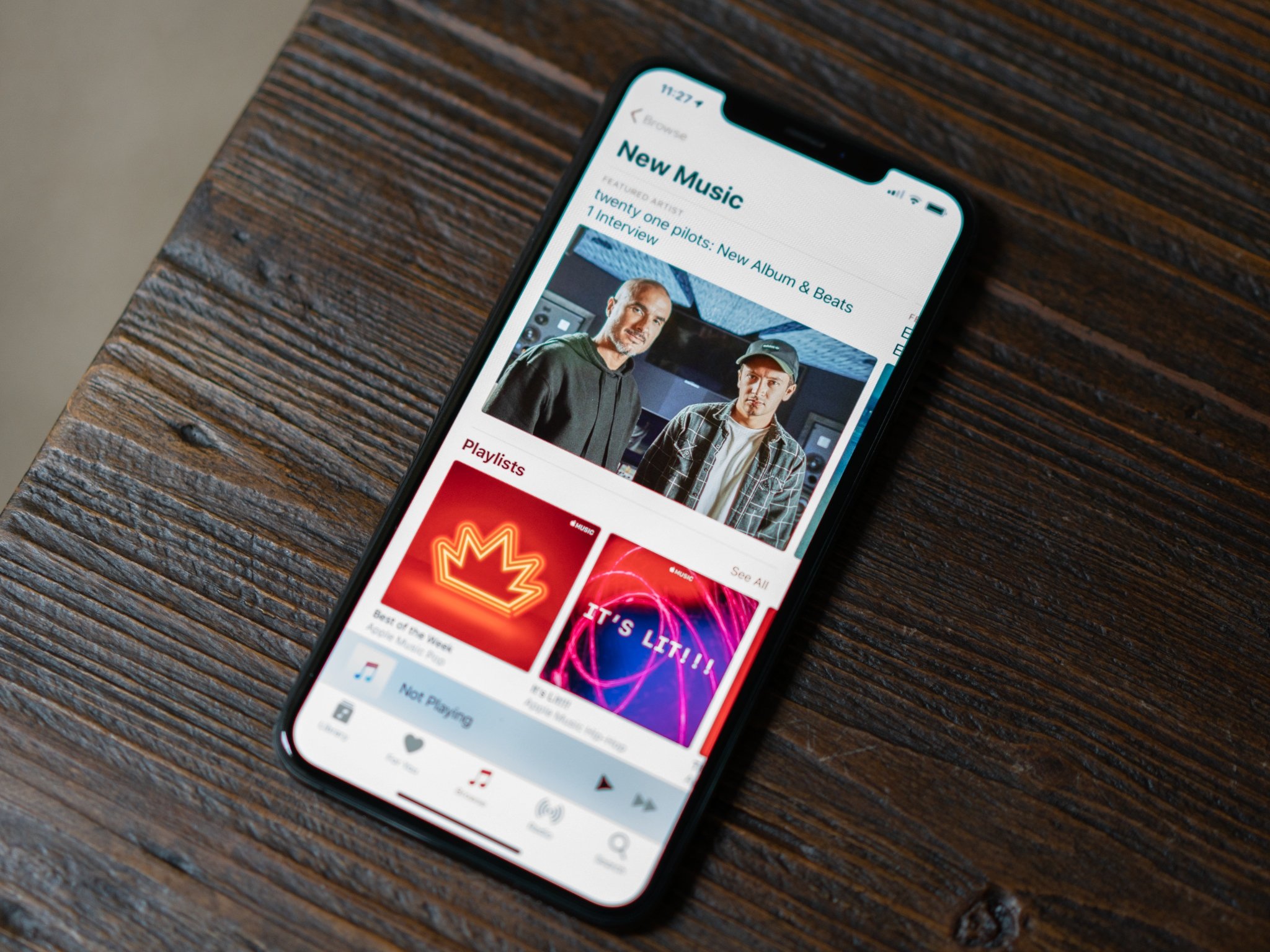
That's because Apple's business was never iPods and Macs or iTunes Music. it was personal computing devices and content. And Apple is really good at cannibalizing and obsoleting themselves before someone else can do it to them.
Facebook is kinda similar.
I mean, Mark Zuckerberg loves his big blue app and all, but Facebook understands specific services aren't their business. Data brokerage is.
Rather than obsoleting themselves the way Apple does, by creating ever more modern products themselves, they use every means, legit and beyond shady at their disposal, to scour our devices for trends, and then buy companies before they can become real competition. Namely, Instagram and WhatsApp. Or, if like Snapchat, they won't sell — just clone their features and suck out their value.
So, as long as people are using one Facebook product, that lets them get data brokerage hooks in from every Facebook product. That's their business.
Operating systems are also products. Platforms are the business. Microsoft's biggest fumble of the last couple of decades was mistaking Windows, a product, for their business. Only now, with Azure, are they digging themselves out. Apple, on the other hand, has been happily spitting out new operating system products one after the other, from macOS to iOS to watchOS to tvOS.
But operating systems aren't the only products that can be platforms. WeChat in China has become so successful as a platform it's just about obsoleted the operating system layer for iOS and Android.
And that's the line Apple has to track. And closely. The one BlackBerry missed: When your platform value shifts from the operating system layer to the services layer you have to shift with it.
Apple has successfully transitioned that value in the past, putting iTunes on Windows and now again on Samsung TVs, and putting Apple Music on Android and Alexa.
The questions is, will they need to with iMessage and, if so, will they be able to?
iMessage on Android
Now, yes, Apple hasn't traditionally been great at either cross-platform or services, so the idea of people wanting a cross-platform service from Apple could seem a little weird.
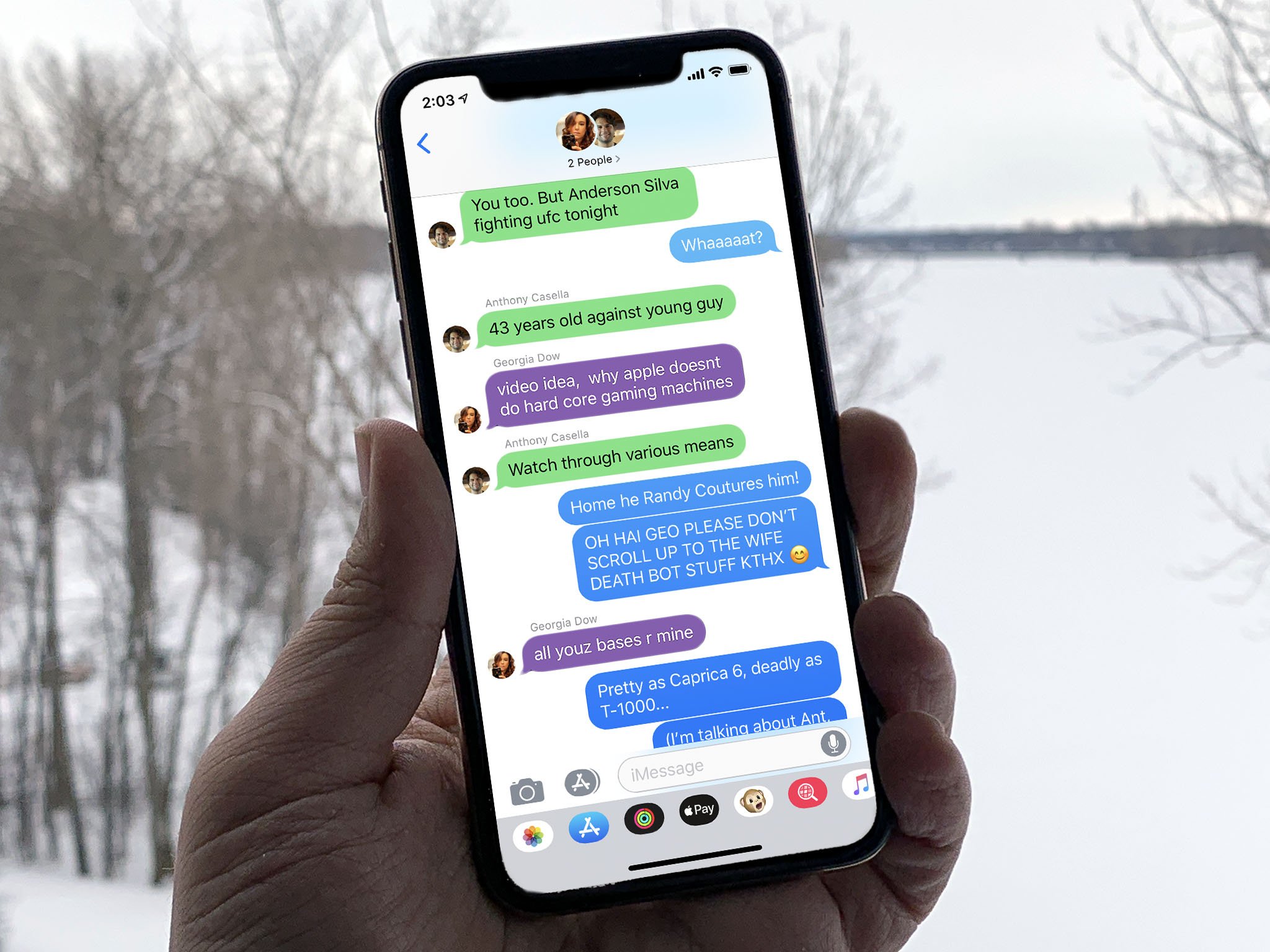
Ostensibly, the primary reason Apple Music exists for Android is so that family plans will be more attractive to cross-platform families.
And why not? Apple Music is a paid service so, even if Apple isn't selling all the atoms, they can still get paid for streaming all the packets and bits.
Same with Apple Music for Amazon Alexa. And, perhaps, in the near future with Apple's original video program and Texture-based Apple News subscription services on a plethora of other devices.
Those will likely also be paid services, though. So, getting as big a potential market as possible for them also makes the kind of sense that does.
After all, we've proven again and again that content is something we're willing to pay for. Even if now we want to lease rather than buy.
But that raises some interesting questions when it comes to iMessage for Android. Apple has probably had it running in some lab somewhere for years already, secret double lives and all that. But what's the value proposition in letting it out? Would it also just work as a paid service?
Many companies give away messaging for quote-unquote free as a candy coating for the data harvesting that fuels their brokerage businesses.
Apple won't do that.
But, iMessage for Android could potentially add hundreds of millions of new users to Apple's servers. In scaling terms, that's like adding another iMessage to iMessage, and absent hardware sales or data brokering behind it, something will have to fund it.
Subscriptions could be the answer, but we're still assuming a lot.
Most importantly, could Apple make as good and as integrated an experience on Android as it has on iOS? Android allows for a deep level of access, but Google, which has unlimited access and resources hasn't been able to make a viable messaging apps despite what feels like an attempt a year for nearly a decade.
Even assuming they can, and it may be too big an assumption to make, how much could Apple charge for it — or, to flip it around, how much would Android users be willing to pay? Would $20 a year be too little? Would $5 a month be too much?
What if Apple sells it as private, encrypted, even… exclusive?
With video games, we've basically been shown people won't pay $5 up front but will pay all their monies, all of it, for ego and instant gratification. To have bigger, better farms than their friends, and to get their race cars back on the tracks faster.
Would a blue bubble be worth paying for? Or an even more exclusive color, like purple for anyone who subscribes, even Apple device owners?

Rene Ritchie is one of the most respected Apple analysts in the business, reaching a combined audience of over 40 million readers a month. His YouTube channel, Vector, has over 90 thousand subscribers and 14 million views and his podcasts, including Debug, have been downloaded over 20 million times. He also regularly co-hosts MacBreak Weekly for the TWiT network and co-hosted CES Live! and Talk Mobile. Based in Montreal, Rene is a former director of product marketing, web developer, and graphic designer. He's authored several books and appeared on numerous television and radio segments to discuss Apple and the technology industry. When not working, he likes to cook, grapple, and spend time with his friends and family.
